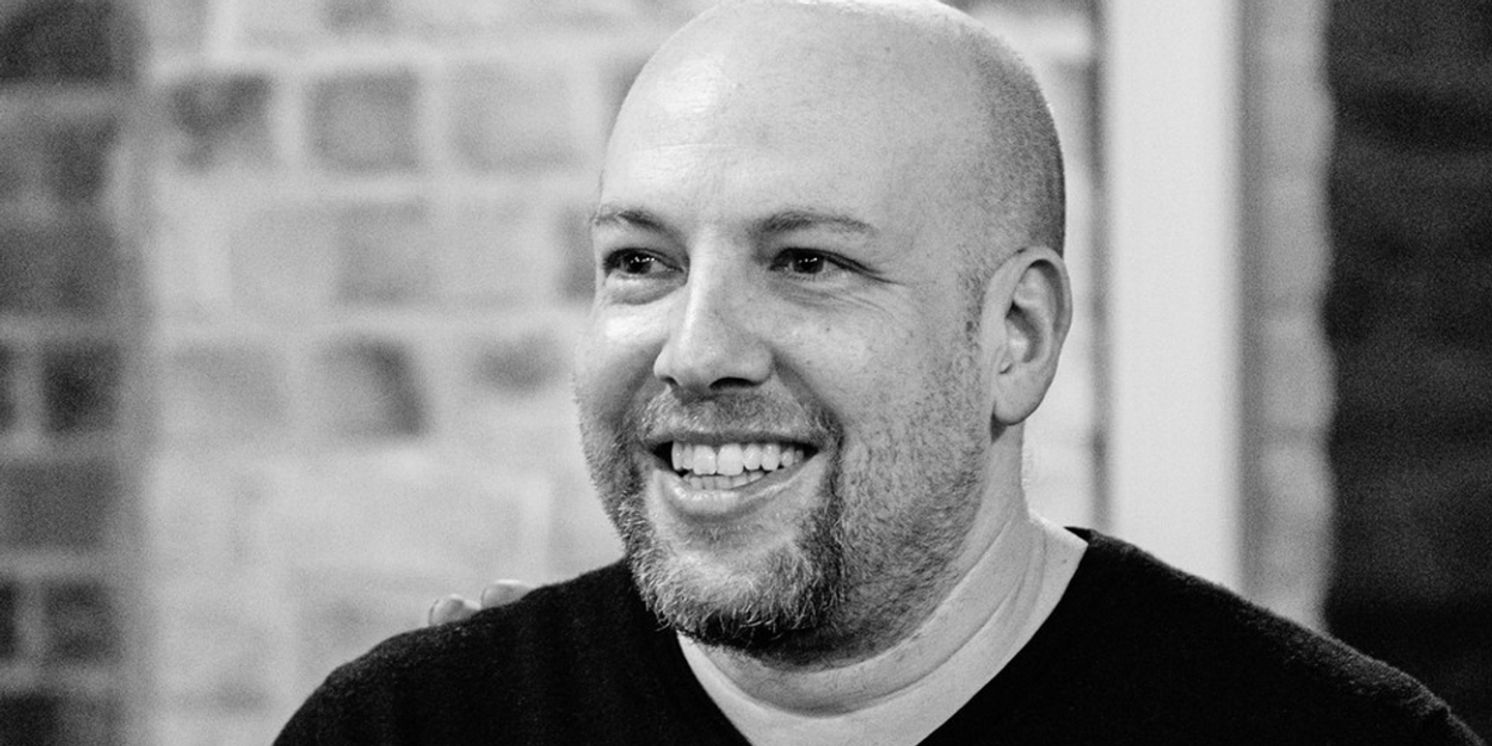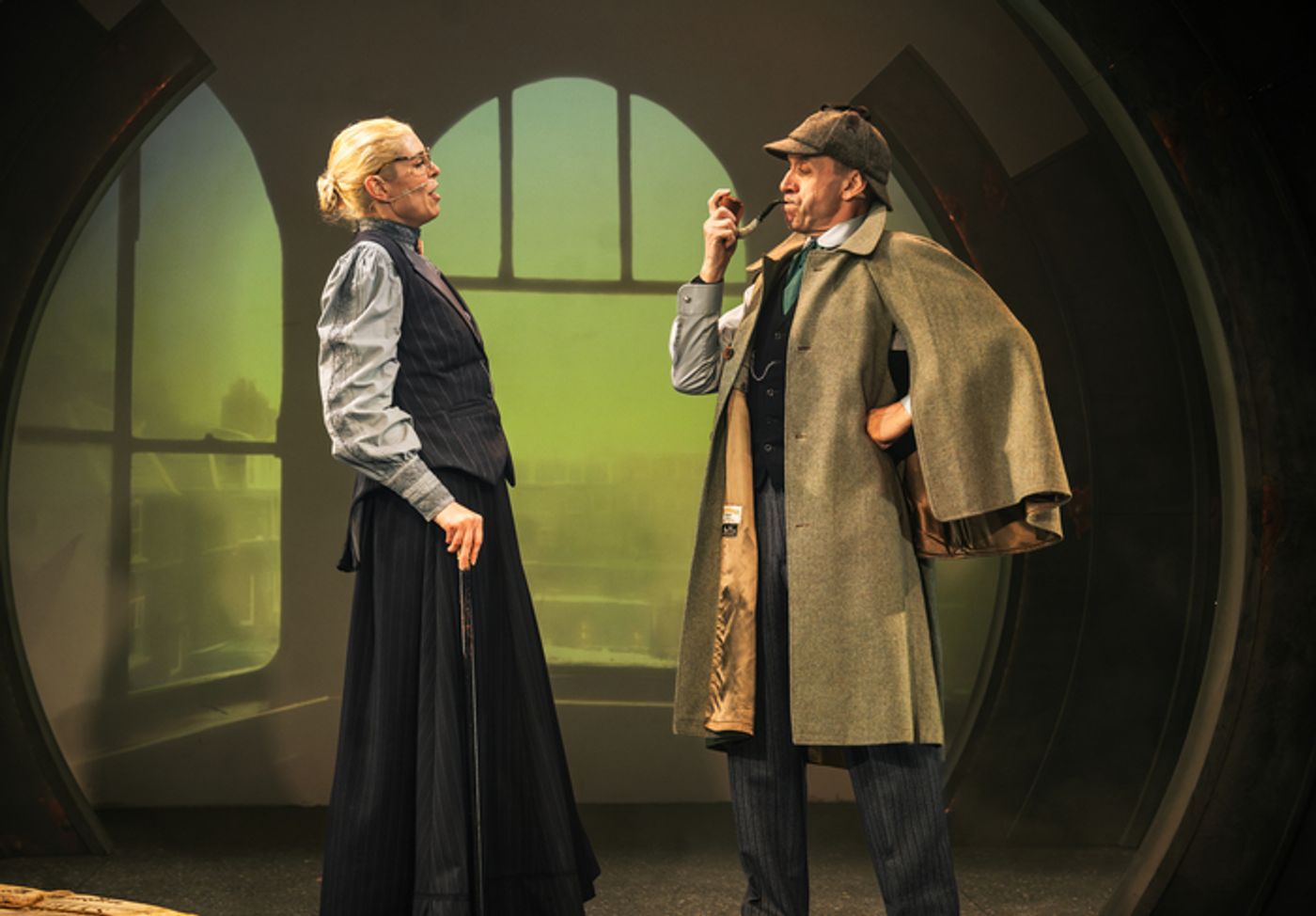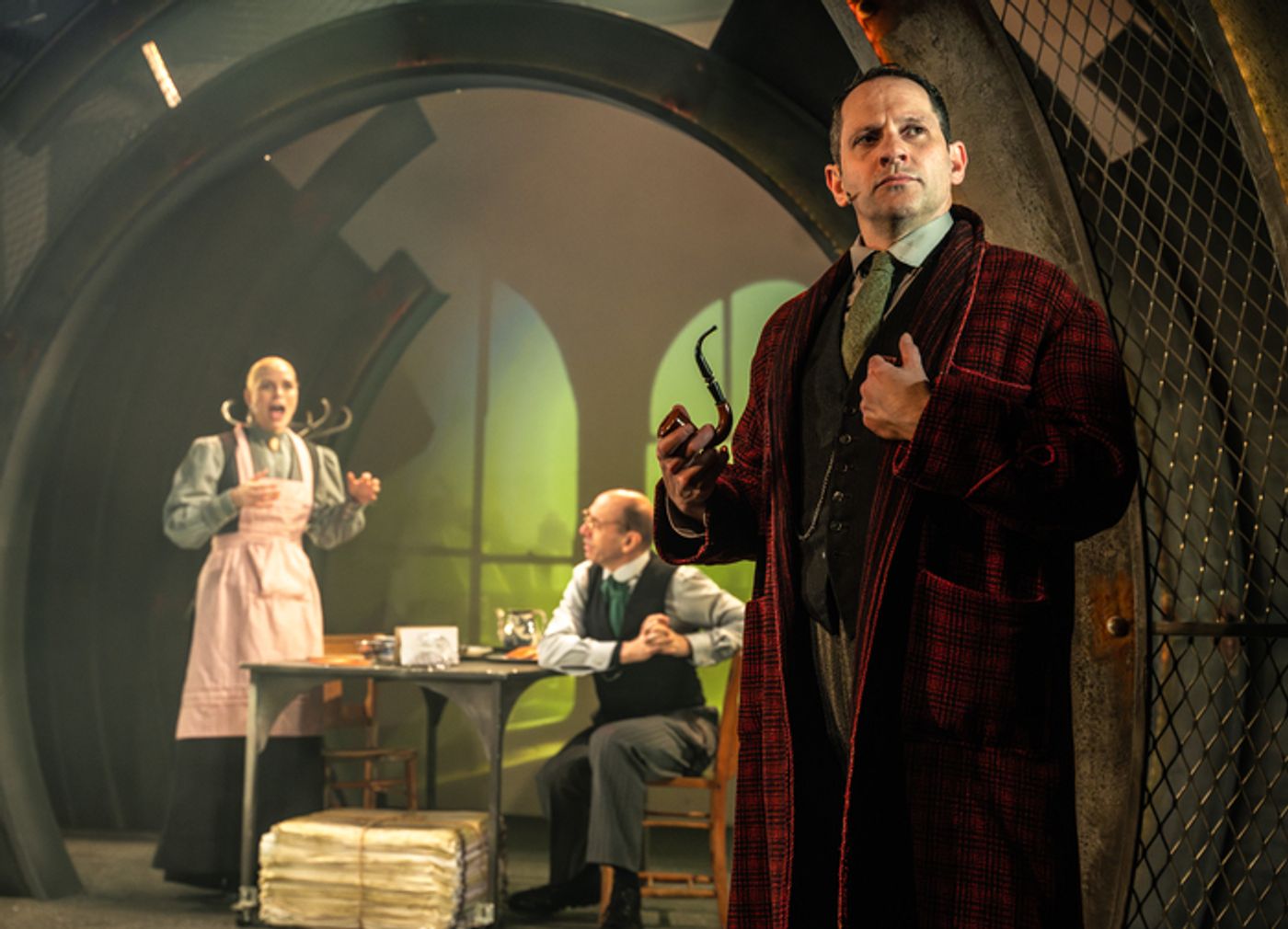Interview: 'Might it Take a Fiction to Catch a Fiction?': Director Adam Meggido on SHERLOCK HOLMES AND THE WHITECHAPEL FIEND
'There's a lot to think about in terms of our obsession with crime and out how we mythologise crime and . . . our obsession with true crime documentaries.'

Sherlock Holmes and the Whitechapel Fiend, a brand-new comedy adventure, is now open at Cirencester's The Barn Theatre. Arthur Conan Doyle’s fictional Victorian London collides 1888 London and the Whitechapel Murders. A hilarious mix of Thirty-Nine Steps and Cunk on Britain, combined with the technical wizardry of The Barn.
BroadwayWorld spoke with the director; Drama Desk Award nominee Adam Meggido about what it’s been like bringing the show to life.
How did you first get involved in the world of theatre?
My parents were in theatre, actually! My parents were both dancers and choreographers so I grew up with a lot of theatre, especially musical theatre. When I was a child, it was a very appealing escape to another world. And I've always liked other worlds and world-building and fantasy. Music and drama were things that I did when I was very young and I was introduced very young. That was the start of it, really!
And what made you want to go into directing specifically?
I started out as an actor but very quickly felt that it wasn't for me, because I felt that I was doing just one thing and I liked doing more than one thing. So directing was a way of me doing many things within the theatre environment. And, like I said, I love this idea of world-building. Being a director, or a writer, is a very good way of achieving that.
And what made you want to direct Sherlock Holmes and the Whitechapel Fiend?
I've always liked Sherlock Holmes as a character. I like the canon - I read all the stories when I was young. I'm always interested to see what people do with the character, but I've never done a Sherlock Holmes play! So when this came up, I thought, “Oh, this would be this would be great to finally get to work in the world of Sherlock Holmes!” And it was so enjoyable to create 221B Baker Street and London's Victoriana. It's just such a fun world to explore!
Can you tell us a bit about this production in particular?
Yeah! This is by Toby Hulse and Ross Smith. All Sherlock Holmes plays are imaginings, but this a particular conceit, which is what if Sherlock Holmes investigated the case of Jack the Ripper? The Jack the Ripper case, as everyone knows, is surrounded by mythology and surrounded with fiction. So in amongst the truth of those horrific murders, we have this industry that's built up around “Ripperology,” Ripper tours . . . It becomes almost a key tourist attraction in those parts of London. One of our famous exports is Jack the Ripper.
So why has this industry cropped up around these very horrifying murders? And with so much fiction around, especially at the time when fiction is being communicated in the world of misinformation, might it take a fiction to catch a fiction? So they turned to Sherlock Holmes to see if he can solve the Whitechapel murders.
.jpg?format=auto&width=1400)
Photo Credit: Alex Tabrizi
And had you had an interest in the Jack the Ripper murders as well?
Well, I've read Bruce Robinson’s incredible book, They All Love Jack, which is an extraordinary deep dive, not just into the world of Victorian London but the conceit surrounding Ripperology in total. I found it a very interesting book. I'm not a particular Ripper fan. I'm not a true crime “fan.” True crime is a real obsession for some people and we have lots of documentaries now about it, which the play investigates as well - our obsession with true crime stories. It's not really my thing, but the whole Jack the Ripper story is so iconic! It's impossible to think of Victorian London without thinking of Jack the Ripper. It occupies a particularly dark, powerful part in the city to this day.
What has your process been like for directing Sherlock Holmes and the Whitechapel Fiend?
My process is different with every different play, and even some plays that I've directed multiple times will be different every time I come to them because the timing is different, the cast is different, the theatre is different, the time of one's life as you come back to a script is different. So there's never a fixed process for me. But on this particular project, I talked to Toby, the writer, and we agreed it would be four characters and that they would swap roles continuously so that we wouldn't just have one Sherlock Holmes. We would have multiple Sherlock Holmeses. And from there, it was a question of getting the actors together and workshopping it a little bit, approaching it like a group of four clowns putting on a show. The actors have a clown type, and from that base, they switch characters throughout the show, so it was looking at that language. The show also varies between a crime caper, which is the story of how Sherlock Holmes tries to track down Jack the Ripper, but then it's interspersed and framed with characters talking to camera as if they're on a true crime documentary.

Photo Credit: Alex Tabrizi
You mentioned that you wanted multiple actors to play Sherlock Holmes. What went into that choice?
Because Holmes is so iconic, with this particular script, it felt right that everyone should play them at some point, both male and female - give everyone a chance to put on the deer stalker and carry the pipe and investigate the murder. We're saying that it's all about how a fiction is used to catch a fiction, so it didn't seem right to just have one identifiable Sherlock Holmes. It was more about all of our clowns all being Holmes, all being Watson, all being Mrs. Hudson, all being Inspector Lestrade and being all the characters that they encounter throughout Victorian London.
And what has it been like working with and at the Barn Theatre?
It’s very different for me, because the last few years I've been working very large theaters, 1,000-seater theatres and West End and Broadway. So it's a complete switch to go to a 200-seat theatre in the Cotswolds! It's been such a nice piece to work on. The creative team that we've had on this - Jason Denvir who did the design, Alex Musgrave did lighting design, Amanda Priestly did sound - we had a very short space of time to agree upon what the piece is. And it has a really strong look about it, which I'm thrilled with! To have a group of collaboratives unify so quickly is really nice.

Photo Credit: Alex Tabrizi
And what do you hope audiences take away from this show?
I hope they enjoy it! Ostensibly, it's a comedy. It's very provocative. There's a lot to think about in terms of our obsession with crime and how we mythologise crime and, again, our obsession with true crime documentaries. There's a lot of provocation in there. But it's done rather gently and elegantly. So I hope people will take away a good time with a lot of thought.
Finally, how would you describe the show in one word?
Layered.
Sherlock Holmes and the Whitechapel Fiend runs until 9 March 2024 at the Barn Theatre.
Videos

